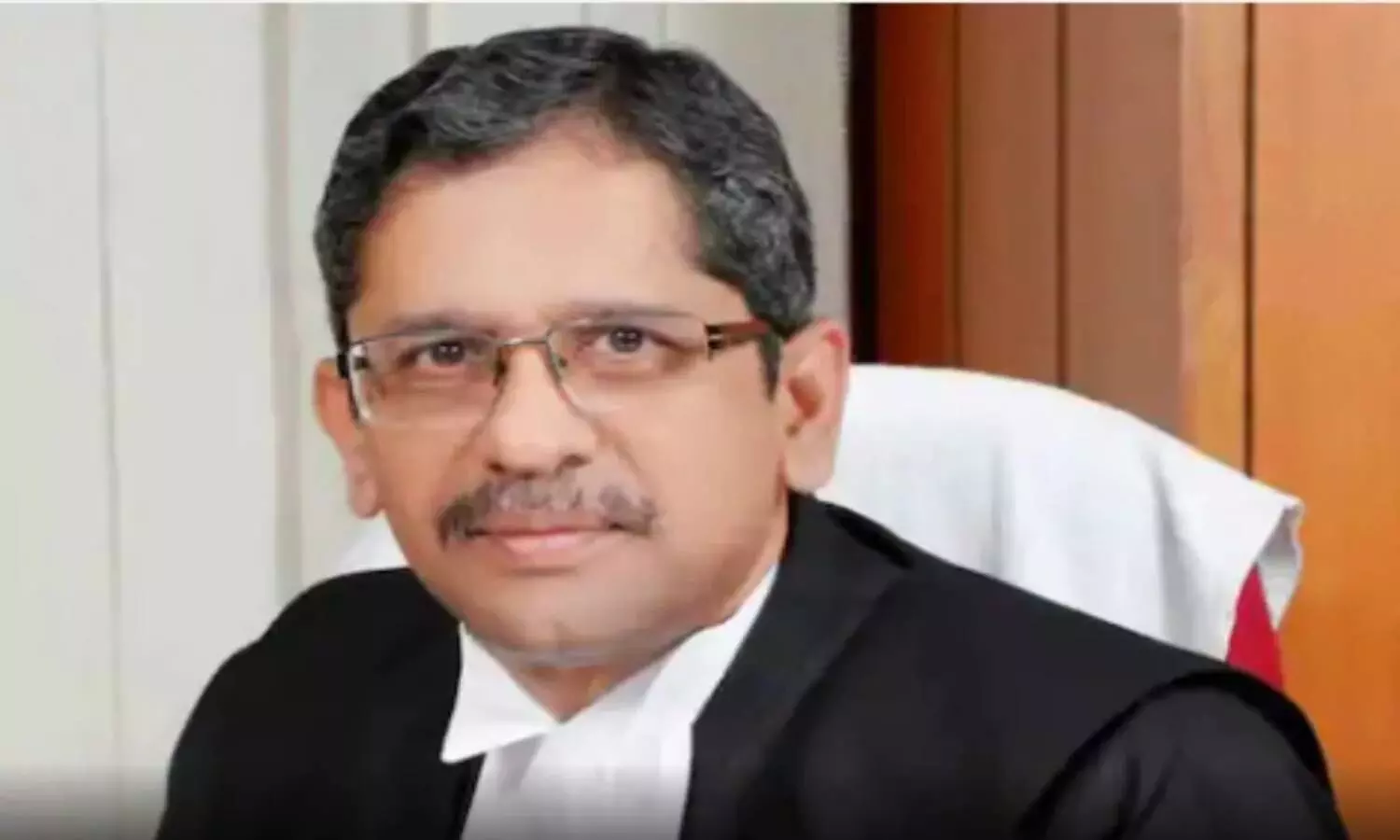Video conferencing to all-inclusive courts: NJIC to augment judicial infrastructure across country
Chief Justice of India (CJI) NV Ramana on Friday announced to set up National Judicial Infrastructure Corporation (NJIC) to augment judicial infrastructure across the country.
By Newsmeter Network
Hyderabad: Chief Justice of India (CJI) NV Ramana on Friday announced to set up National Judicial Infrastructure Corporation (NJIC) to augment judicial infrastructure across the country.
Under the aegis of NJIC, comprehensive, self-contained, all-inclusive and modern court complexes will be built across the country to augment judicial infrastructure.
"With the lessons drawn from the pandemic, necessary permanent infrastructure for video conferencing in all the courts will also need to be integrated into proposed modern court buildings," the CJI said during a webinar with chief justices (CJs) of all high courts.
Justice Ramana said poor infrastructure is proving to be a major stumbling block in the justice delivery system. He shared his vision for the creation of the National Judicial Infrastructure Corporation.
CJI said he wishes to take forward the national plan for judicial infrastructure on priority after incorporating the inputs received from all the stakeholders. Justice Ramana said unless the infrastructure is strengthened it is unfair to expect the courts, particularly the lower judiciary to do miracles in increasing the pace of justice delivery.
"Both quality and quantity of justice delivery can be improved only when the support systems are strong enough to meet the challenges," he said
CJs of Bombay High Court, Punjab and Haryana High Court and Andhra Pradesh High Court have requested CJI's intervention to get the impediments removed so as to enable them to augment infrastructure. A few Chief Justices have also requested to get the functionaries of the Courts declared as frontline workers for the purpose of vaccination on priority.
Justice Ramana took this opportunity to re-emphasize the need to expedite the process of filling-up of vacancies, particularly in the High Courts. This is a follow-up to the letter he had already written to CJs of High Courts in this regard in the first week of May 2021 soon after he took over as Chief Justice of India. The incumbent Bench strength and vacancy position in each of the High Court was reviewed during the interaction.
During the webinar, Justice Ramana received a briefing on the functioning of various High Courts and the subordinate judiciary across the country in the wake of the Covid-19 pandemic.
Issues such as the pendency of cases and the functioning of judicial academies were also briefly touched upon in the interactive sessions. Chief Justice of India advised brother judges of High Courts to make the best use of the pandemic time by way of imparting quality training to judicial officers in the virtual mode through Judicial Academies, wherever possible.
Justice Ramana condoled the loss of lives of many judges, advocates, judicial officers, and staff due to the pandemic across the country. He complimented the CJs of HCs for taking appropriate steps to reassure the judicial fraternity in these trying times. Justice Ramana advised the CJs to factor in the prevailing conditions in their respective territories while deciding further course of action.
The impact of pandemic on the functioning of the judiciary, the measures taken by the judicial administration to ensure that the wheels of justice are on the move, the innovations to tackle the challenges thrown by the pandemic, vaccination drives to keep all the stakeholders and their families safe, issues of connectivity/networking, challenges of judicial infrastructure, vacancies, etc. figured prominently in the freewheeling discussion.
From the confabulations, it was gathered that in the wake of the second wave of Covid-19 pandemic, all High Courts have moved from hybrid mode to complete video conferencing mode and most of the Courts have rescheduled their summer vacations to minimize the suffering.
The general view that emerged was that the digital divide is impacting the functioning of the judiciary and better connectivity and network in districts, particularly in rural and tribal areas, would go a long way in enhancing the efficiency of the subordinate judiciary. One of the HCs has introduced Mobile Video Conferencing van to address this issue, at least partly.
Vaccination drives, by and large, were satisfactory in High Courts and to a certain extent in District Courts but a majority of the lower courts are still awaiting their turn. A considerable degree of vaccine hesitancy is noticed across both rural and urban areas. Mobile Vaccination Centers are being contemplated by one of the HCs to reach the vaccines to Sub-Division and Tehsil level courts.
Justice Ramana assured CJs of High Courts that their concerns on connectivity, vaccine supply, and urgent issues of infrastructure that are pending will be taken up by Supreme Court Registry with the Central Government. The CJs of HCs were also assured that their request to get the functionaries of the Courts declared as frontline workers for the purpose of vaccination on priority will be taken up for consideration by concerned authorities.